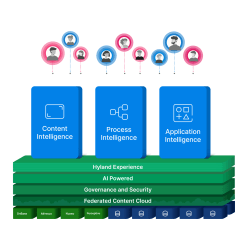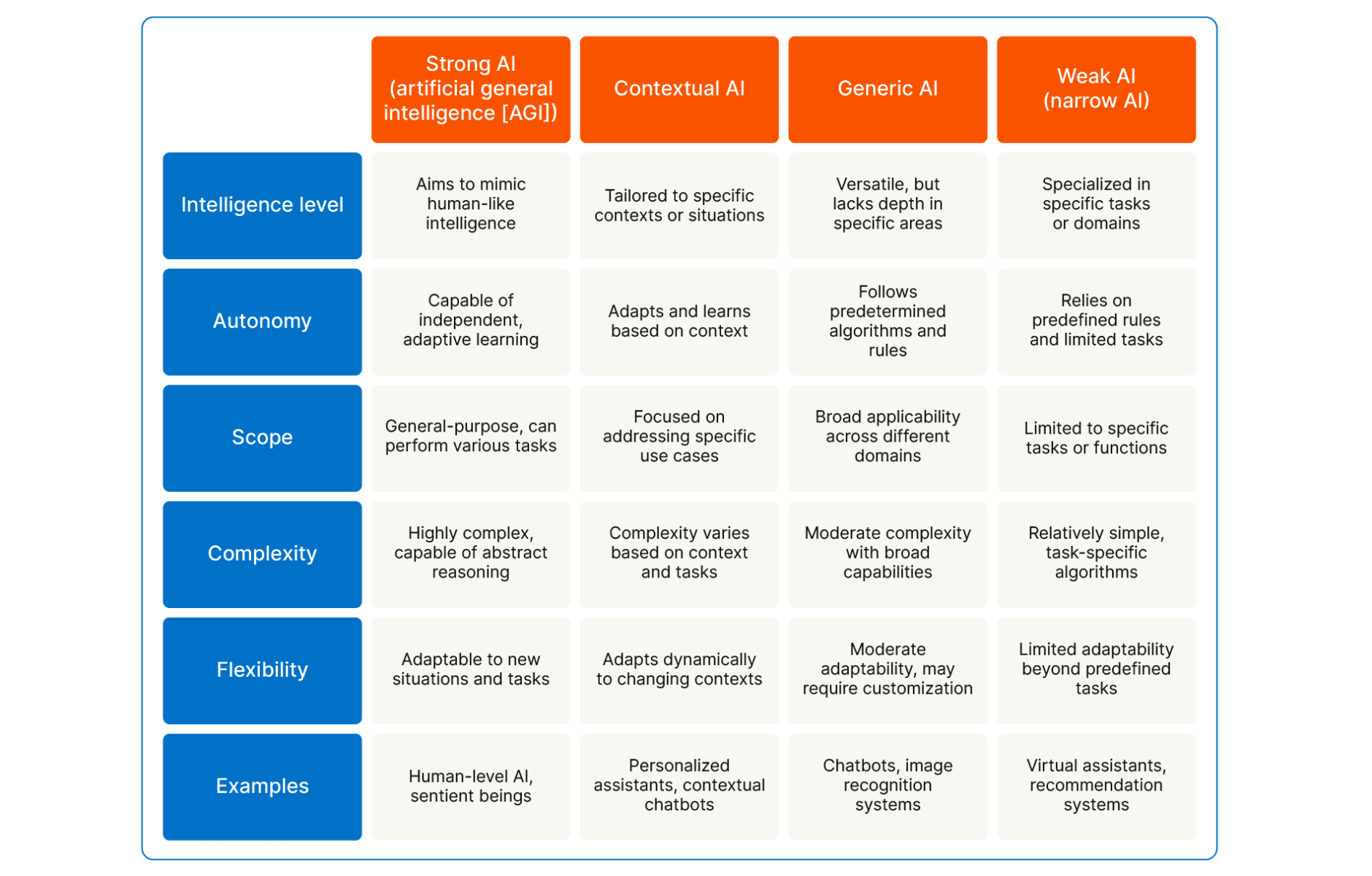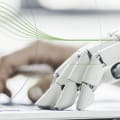AI in action
AI’s capabilities are always increasing, and it's become evident how this technology can radically change operations of organizations across different sectors. These are a few examples of how AI solves everyday challenges:
Banking and finance
In the financial sector, AI revolutionizes data management by facilitating real-time fraud detection to minimize false positives and expedite investigations for swift customer resolutions.
For instance, predictive analytics can pre-empt fraudulent transactions, reducing the need for repetitive screenings and streamlining response protocols.
Healthcare
Healthcare professionals leverage AI to enhance health outcomes and patient experiences in many ways, including analyzing scans and detecting abnormalities that a human eye may miss.
Additionally, AI acts as a reliable assistant, alerting medical teams to potential diseases among critical care patients, thereby optimizing response times and treatment plans.
Media and entertainment
To ensure information accuracy, AI fact-checks and filters false sources, creating trust in media and entertainment consumption.
Moreover, AI facilitates efficient content creation by providing live captions for broadcasts and videos, empowering journalists and content creators to deliver timely and accessible content to diverse audiences.
Retail and e-commerce
AI-driven insights enable retail businesses to personalize customer experiences, optimize inventory management and streamline supply chain operations.
By analyzing vast datasets, AI algorithms can potentially predict consumer preferences, anticipate demand fluctuations and recommend tailored product offerings, thereby enhancing customer satisfaction and driving revenue growth.
Manufacturing and production
In manufacturing and production environments, AI-driven automation enhances operational efficiency, quality control and predictive maintenance.
These companies integrate AI-powered predictive analytics and ML algorithms to optimize production processes, minimize downtime and proactively address equipment failures, thereby maximizing productivity and reducing costs.
Education and learning
Learning platforms powered by AI analyze student performance data to tailor instructional materials and interventions, catering to individual learning styles and abilities.
The ability to personalize learning experiences helps foster student engagement and self-directed learning.
> Read more | The role of AI in transforming higher education
Agriculture and farming
AI-driven precision agriculture solutions optimize resource utilization, crop management and yield prediction.
By integrating sensor data, satellite imagery and weather forecasts, AI algorithms can provide farmers with actionable insights to make informed decisions about planting, thereby increasing crop productivity and sustainability.
Transportation and logistics
Within transportation and logistics, AI technologies enhance route optimization, fleet management and predictive maintenance of vehicles.
By analyzing real-time traffic data, weather conditions and the likelihood of equipment failures, AI algorithms can optimize delivery schedules and minimize service disruptions.
Environmental conservation
AI can play a crucial role in monitoring and protecting ecosystems, biodiversity and natural resources.
By providing actionable insights using satellite imagery, AI empowers conservationists and policymakers to make informed decisions and implement targeted interventions for sustainable resource management.
Cybersecurity
For cybersecurity, AI technologies enhance threat detection and incident response by analyzing network traffic and user behavior.
By leveraging ML algorithms, AI systems adapt to evolving threats, improving detection accuracy and reducing response times to mitigate cyber risks effectively.
> Read more | AI in the workplace
















